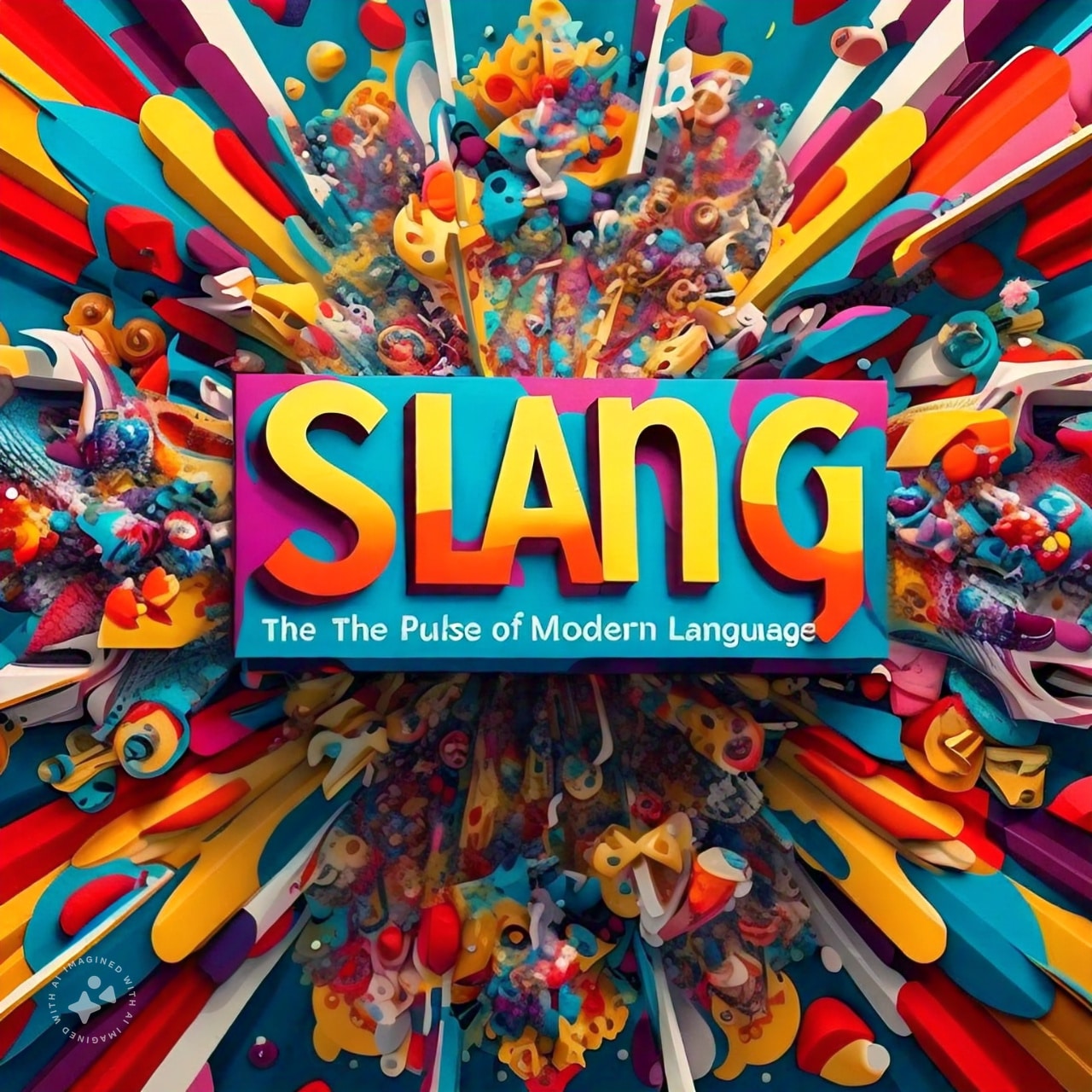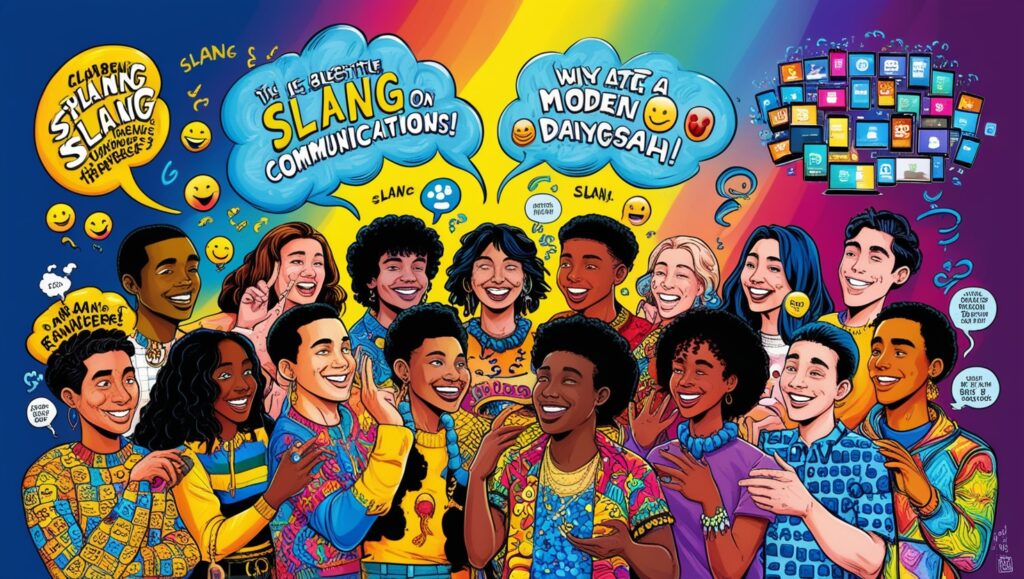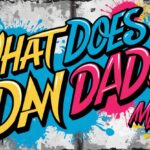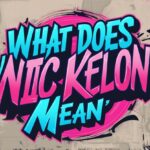Slang—those creative, often quirky words and phrases that pop up in our everyday chats—has transformed the way we communicate today. It’s not just for teenagers or casual conversations anymore; slang https://www.98thpercentile.com/blog/the-power-of-slang-informal-language-in-everyday-life is part of our digital age, coloring how we express, connect, and understand each other.
In this article, we’ll explore how slang shapes our lives, creates unique connections, and even sparks debates on how language evolves. From LOL to vibe check, let’s dive into the world of modern slang and see why it’s so impactful.
1. Slang: The Pulse of Modern Language 🌐
If language is a living organism, then slang is its heartbeat. Slang keeps our language fresh and reflects cultural shifts, often faster than formal language ever could.

Imagine you’re texting a friend. Rather than writing a long response, you might just say, “bet” to confirm plans. This one-word response packs a punch, communicating agreement in a modern, relatable way. Slang simplifies conversations, making them feel more direct and in touch with the moment.
Slang often picks up where traditional language leaves off. When you need a way to express emotions, like the awe of a mind-blowing idea or the thrill of living your best life, slang swoops in with phrases that resonate.
2. The Digital Playground: Where Slang Thrives 🎮
Social media, memes, and internet culture have supercharged the spread of slang. Platforms like TikTok, Instagram, and Twitter are breeding grounds for new terms. Ever heard of stan (to be an enthusiastic fan) or main character energy (feeling like the star of your own story)? These terms didn’t just appear out of nowhere; they grew within online communities, where words can go viral overnight.

Why Does Social Media Matter?
The digital world brings diverse cultures, perspectives, and generations into one place. When Gen Z invents a term, Millennials and older generations may soon adopt it. Think about how throwback went from nostalgic photo captions to everyday conversations. This fast-paced evolution bridges gaps between people of all backgrounds, creating a shared, ever-expanding vocabulary.
3. Building Connections Through Slang 🤝
Slang isn’t just about words; it’s about belonging. When you understand or use a piece of slang, you’re signaling that you’re “in the know.” This creates a sense of community, especially among younger people who find identity in using fresh, unique expressions.

Consider how phrases like on fleek or no cap create bonds in groups. They aren’t just trends; they’re linguistic glue. When someone says, “I’m dead” to mean they’re laughing hard, it’s not just a phrase—it’s a moment of shared humor and understanding.
4. Evolution or Erosion? The Debate Over Slang 🧐
Not everyone embraces slang with open arms. Some worry that it’s eroding the language, making it too casual or even damaging. But is slang really a threat?

Perspectives on Language Change
Linguists argue that language is always evolving and that slang doesn’t replace formal language; it adds another layer. The real challenge isn’t slang itself but how we adapt to these shifts. For example, parents might struggle to understand what “simping” or “FOMO” means, creating a language gap. Yet, many believe this evolution keeps our language flexible and inclusive.
5. Slang and Self-Expression 🎨
Slang brings emotion and personality into conversations. Rather than typing a long message to explain how amazing a concert was, you might just say, “It was fire!”

A Tool for Creativity and Identity
Using slang allows people to play with words and show off their creativity. Think of the phrase glow up—it paints a picture of someone transforming and becoming their best self. Slang phrases often give voice to emotions and experiences that standard words can’t fully capture. They add flair to our identities, helping us express our unique perspectives and connect with others who share similar vibes.
6. The Future of Slang: Where Do We Go from Here? 🚀
The future of slang will likely be even more dynamic. As technology advances, new communities emerge, and cultures blend, our language will adapt. The rise of AI, virtual reality, and other digital innovations will likely spark new terms that reflect these changes.

Will today’s popular slang fade, or will some words become timeless? Only time will tell, but one thing is clear—slang will remain a vital part of communication, reflecting the rhythm of our society.
7. Bridging Generations Through Shared Language 🌱
One fascinating aspect of slang is its ability to both unite and divide generations. Every age group has its own “slanguage” that reflects the spirit of its time. While Boomers might fondly remember saying “groovy” or “far out,” Gen Z has its own code, full of phrases like low-key, big yikes, or lit.
Yet, even with these differences, slang can also bridge the generational gap. When parents learn the latest expressions from their kids, they’re participating in a cultural exchange. This mutual learning process fosters understanding and even strengthens family bonds. When an older person casually drops a term like no cap in conversation, it’s not just humorous—it’s a sign of respect and an effort to connect.

The Challenges of Slang in the Workplace 💼
This linguistic evolution poses unique challenges in professional settings, where understanding modern slang can sometimes be crucial. As younger generations enter the workforce, they bring their language along. Terms like synergy and moving the needle may still dominate, but new slang expressions—often internet-inspired—are filtering into office talk.
This shift might seem trivial, but it actually influences workplace culture and communication styles. Using terms like cringe or finesse in professional conversations subtly changes the dynamics, adding a touch of informality that can make work feel less rigid. However, it also creates challenges for those who might not be familiar with these terms, making inclusivity a priority.
8. Slang as a Catalyst for Social Change 🌍
In today’s digital world, slang has evolved into a tool for activism and social movements. Consider the term cancel culture—a phrase that took off to describe calling out unacceptable behavior, especially from public figures. This slang not only shaped the way we discuss accountability but also brought the concept into mainstream awareness.
Other terms, like woke (originally a call to stay aware of social injustices) or allyship (the active support of marginalized groups), reveal how slang can spread social consciousness. These terms empower individuals to voice their beliefs and stand with causes they care about. With a single word, people can take a stance, joining a movement without needing lengthy explanations.

How Slang Drives Awareness and Action 🚩
Terms born from activism often carry an emotional weight, capturing the spirit of a movement in a way that resonates with people across backgrounds. Defund the police or clap back may sound simple, but they encapsulate complex social issues, making them accessible and shareable in the era of social media. Through slang, language becomes a force that not only reflects society but actively shapes it, promoting awareness and inspiring action.
9. The Dark Side of Slang: Misinterpretations and Stereotypes ⚠️
While slang can bring people together, it can also create misunderstandings and reinforce stereotypes. Words change meaning based on context, so a term that’s positive in one culture may have negative connotations in another. The rapid spread of slang online means that some words may be adopted without fully understanding their origins or meanings, leading to unintended offense or cultural misappropriation.

For example, words like savage or boss are empowering in some circles but may be misinterpreted in others. The same goes for expressions like AF or thirsty, which may seem harmless to one group but can be taken differently by others. Slang words can even take on a life of their own, straying from their original intent and sometimes reinforcing negative stereotypes.
The Responsibility of Language Use 🌈
This is where cultural sensitivity becomes essential. Understanding slang deeply means acknowledging where it came from and using it respectfully. Avoiding harmful or appropriative language promotes inclusivity, allowing slang to connect rather than divide us. Language has immense power, and using it responsibly ensures that everyone feels heard and respected.
Embracing Slang: A Journey of Understanding and Connection 💫
As we continue to evolve, so will our words. Slang will keep reshaping our conversations, bringing humor, depth, and humanity to our interactions. Embracing slang means staying curious and open to how language reflects, influences, and sometimes even challenges our perspectives.
In the end, slang isn’t just about trendy words or phrases; it’s about creativity, adaptability, and a sense of shared experience. It gives us a window into the zeitgeist, showing us what matters to people now—whether it’s a funny meme, a social movement, or just the joy of being understood.

So next time you hear a new term that makes you pause, don’t dismiss it. Embrace it, try it out, and see how it brings you closer to the world around you. After all, language is ours to shape, and slang reminds us of the boundless potential of words.
Final Thoughts: Embracing the Power of Slang 🌍
Slang is more than just casual chatter; it’s a vibrant part of modern communication. It brings humor, empathy, and connection into our lives, bridging gaps between different backgrounds and ages. As our world changes, slang will continue to evolve, keeping pace with how we live, think, and connect.

Explore These:
https://slanggalaxy.com/vibe-check/
So next time you say something is lit or extra, remember—you’re participating in a centuries-old tradition of shaping language to fit the moment. Slang may be informal, but its influence is undeniably powerful.







